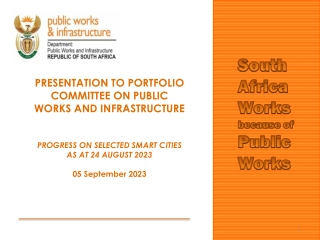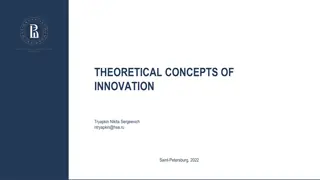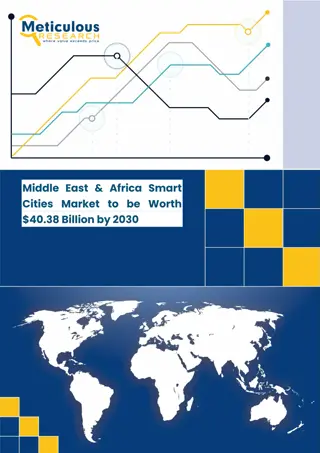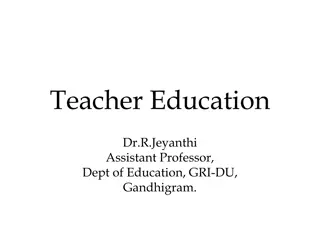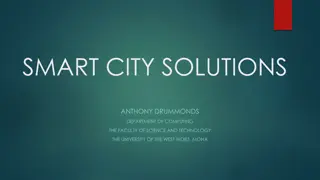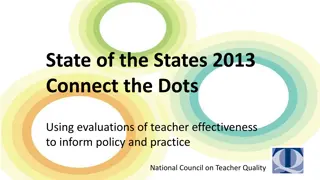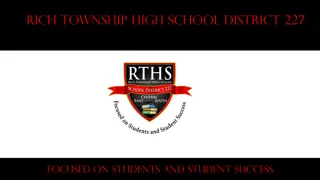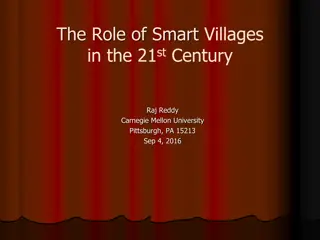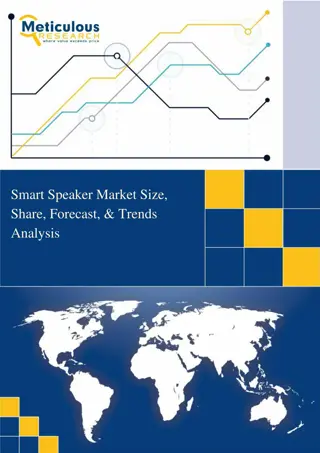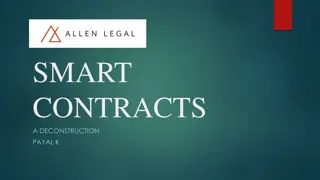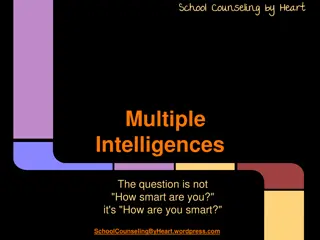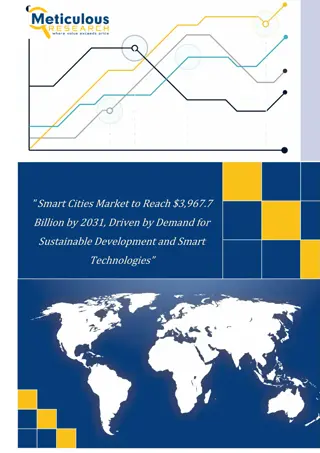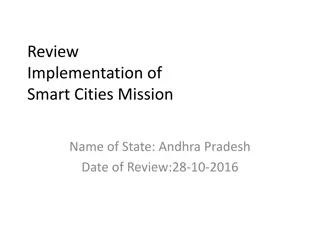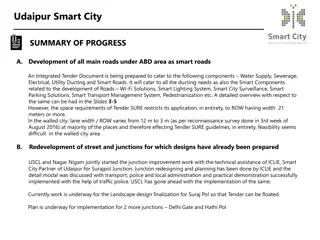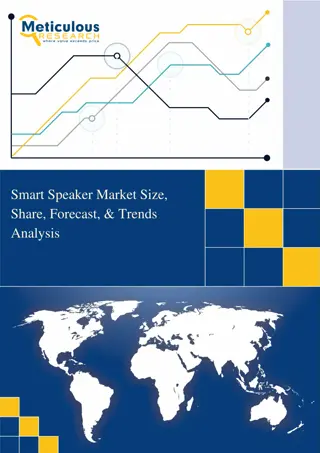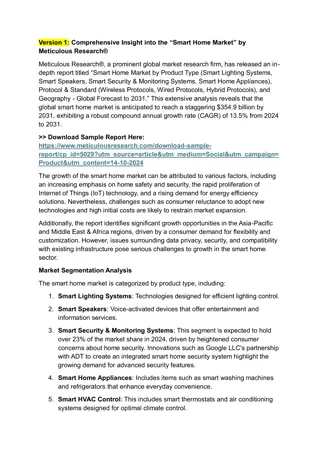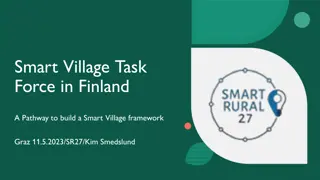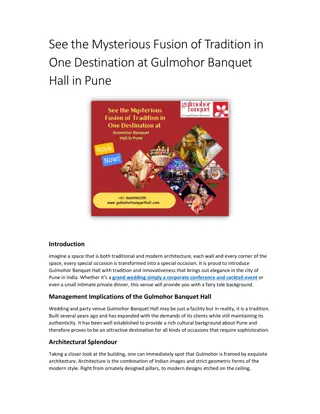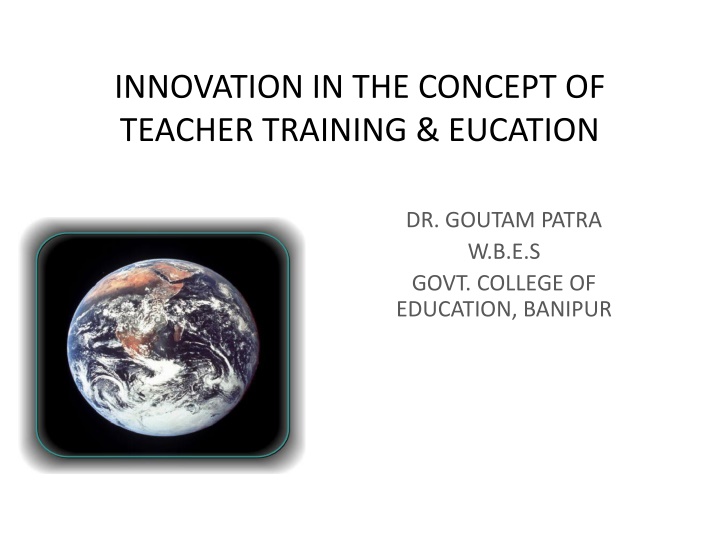
Innovative Concepts in Teacher Training & Education
Explore innovative approaches in teacher training & education, emphasizing smart teaching, value-driven learning outcomes, and the importance of imagination in the teaching process. Discover how training in teaching and education shapes professional ideals and principles for self-improvement and excellence.
Download Presentation

Please find below an Image/Link to download the presentation.
The content on the website is provided AS IS for your information and personal use only. It may not be sold, licensed, or shared on other websites without obtaining consent from the author. If you encounter any issues during the download, it is possible that the publisher has removed the file from their server.
You are allowed to download the files provided on this website for personal or commercial use, subject to the condition that they are used lawfully. All files are the property of their respective owners.
The content on the website is provided AS IS for your information and personal use only. It may not be sold, licensed, or shared on other websites without obtaining consent from the author.
E N D
Presentation Transcript
INNOVATION IN THE CONCEPT OF TEACHER TRAINING & EUCATION DR. GOUTAM PATRA W.B.E.S GOVT. COLLEGE OF EDUCATION, BANIPUR
TEACHER T- E- A- C- H- E- R- TENACIOUS ENERGETIC/ENTHUSIASTIC ATTENTIVE/AFFECTIONATE CARING/CREATIVE/CO-OPERATIVE HONEST EFFICIENT RESPONSIVE/RESOURCEFUL
SMART Teaching Teaching is basically aligned on three fundamental types of learning outcomes : Knowledge Skills Values Specific, Measurable, Achievable, Realistic and Time-bound Delivering high-quality instruction requires innovation, (defined as an idea, practice, or object that is perceived as new by an individual or other unit of adoption ) 3
TRAINING IN TEACHING AND EDUCATION FOR TEACHER Story of a Cap seller and values of Training Empathic attitude of Ma Sarada Motivation by S. Ayar to A.P.J. Kalam Story of a Shphered
Einstein once wrote : Imagination is more important than knowledge The act of teaching is pragmatic and practical embodiment of imaginations based on appropriate knowledge 5
T. E. Creates self imposed professional ideals and principles necessary for the attainment of self satisfaction and professional excellence. For self correction : For self satisfaction : To guide the conduct and behaviour : To shape the personality : To set up Ideals for Students : Improvement of Human Relation : To improve the Professional Environment To follow norms and principles of the profession
Teacher Education refers to the Policies and Procedures designed to- equip prospective teachers with knowledge, Attitude, Behaviour and skills To perform their task effectively in the class rooms Schools and Wider community
Teacher education encompasses teaching skills, sound pedagogical theory and professional skills W.H. Kilparick Teacher Education=Teaching Skills+ Pedagogical skills+ Professional Skills
Computer aided instruction What I hear, I forget What I see, I remember Chinese saying
Teacher Education equips the Teacher to serve two major Purposes: To educate students in cognitive Knowledge and Skills To develop in them, values, morality social skills and Life skills to become a useful member of the community and society
The quality of a nation depends upon the quality of its citizens. The quality of its citizens depends not exclusively, but in critical measure upon the quality of their education, the quality of their education depends more than upon any single factor, upon the quality of their teacher. American Education Commission
John Deweys Concept: Relationship between Teaching and Learning as equation between selling and buying Silberman sconcept: Teaching is like the Practice of Medicine, Great teacher is like the great doctor adds creativity and inspiration to basic repertoire
Teacher Education Enables the student teachers to- Care for children, and who love to be with them; Understand children within social, cultural and political contexts; View learning as a search for personal experience; Understand the way learning occurs, possible ways of creating conducive conditions for learning,
Teacher Education enables to- Be receptive and constantly learning. View knowledge generation as a continuously evolving process of reflective learning. View knowledge not as an external reality embedded in textbooks, but as constructed in the shared context of teaching-learning and personal experience.
Teacher Education enables to- Own responsibility towards society, and work to build a better world. Appreciate the potential of productive work and hands-on experience as a pedagogic medium both inside and outside the classroom. Analyze the curricular framework, policy implications and texts. Have a sound knowledge base and basic proficiency in language
Provide opportunities to develop professional skills in pedagogy, observation, documentation, analysis, drama, craft, story-telling and reflective inquiry.
Changing Scenario in 21st Century Information Explosion Knowledge Explosion Aspiration Explosion Expectation Explosion Communication Explosion Varied Dynamics in different Societies- Rural, Urban, Semi-urban, Elite Society, Industrial societies, Agricultural Societies, Mercantile societies, E-learning age Development in ICT
Teacher Education in Changing Scenerio Around 35 million children, in the age group of 6 to 14 years, are still estimated to be out of school and the percentage of girls and other disadvantaged sections is disproportionately high among these children. India has one of the largest networks of schools in the world. Indian education system shifted from an elite system to a system of mass education. For instance, the number of primary schools was around 200,000 in 1950, which is at present more than 600,000.
Indias commitment to provide free and compulsory education for all children until they complete the age of 14 and achieve Universalization of Elementary Education (UEE) and Millennium Development Goal (MDG) with substantial improvement.
T.E. ENABLES A SMART TEACHER Making Learner Centered Classroom-Self learning-intrinsic motivation-recipe for better learning outcome Making Students as Producers devices, blogs digital stories Being Efficient in learning new technologies Being smart and global Being - Innovator/Creator/Explorer/Planner/Organiser/M otivator/Manager/Communicator/Facilitator/Diss eminator/Counsellor/Diagonostician
Newly visualized Teacher Education Programme- Emphasizes learning as a self-learning participatory process taking place in social context. Puts full faith in self learning capacity of school children and student teacher and evolving proper educative programme for education. Views the learner as an active participative person in learning. His/her capabilities or potentials are seen not as fixed but capable of development through experiences.
Newly visualized Teacher Education Program- Views the teacher as a facilitator, supporting, encouraging learner s learning. Does not treat knowledge as fixed, static or confined in books but as something being constructed through various types of experiences. Emphasizes in such an educative process that will be continuous, will be self-appraisal, will be peer appraisal, will be done by teacher educators, and formal type too.
Newly visualized Teacher Education Program is designed to-- Give learners a wider choice of learning activities according to their own interests and capabilities. Build up a personal portfolio of their best teaching plans so as to share among other teachers. Create exciting learning environment of active knowledge creation and sharing.
Newly visualized Teacher Education Program- Makes the Teachers to be able to : Author and publish experiences and researches conducted. Be central and key participants of curriculum reform and innovation. Encourage learners to work together in a cooperative spirit, help each other with their work as well as be able to evaluate themselves. Help learners publish their own work online portfolios.
Understanding Teaching Concept of Teaching: Derived from Taikjan means to show something Teaching- a kind of communication Edgar Dale communication and projection of experiences -G.G Stern Teaching-Pedagogical behaviour, selecting of subject matter, principles, Norms, system analysis and Instruction- interpersonal interaction-learning A complex Process interactive communication Art Science a creative process
DEFINITOIN BURTON: Teaching is the stimulation, guidance, direction and encouragement of learning THOMAS: Teaching is the task of a teacher which is performed for the development of a child. N. L. GAGE: Teaching is a form of interpersonal influence aimed at changing the behavior potential of another personal Michael Oakeshort: Teaching is two-fold activity of communicating information and communicating judgment. Ryburn: Teaching is a relationship which helps the child to develop his powers B.O.Smith: Teaching is a system of actions intended to induce learning.
Establishing New Learning Environments Learner Teacher-centered instruction centered environments Single sense stimulation stimulation Multisensory Multipath Single path progression progression Multiple media Collaborative work Single Media Isolated Work
Information Delivery Passive learning based learning Factual/literal thinking decision making Reactive response action Isolated, artificial context context Information exchange Active/inquiry Critical & informed Proactive/planned authentic, real world
DIAGRAMMATIC PRESENTATION INSTRUCTI ONAL GOAL PERFORMA NCE ASSESSME NT Components of Teaching ENTERING BEHAVIOUR INSTRUCTI ONAL PROCEDUR E
INSTRUCTION- DEVLOPMENT OF COGNITIVE DOMAIN TRAINING- DEVLOPMENT OF PSYCOMOTOR DOMAIN INSTRUCTIO N- DEVLOPMEN T OF EFFECTIVE DOMAIN MODES of TEACHING
MAKING AND USING KNOWLEDGE SHAPING THE SCHOOLS FIVE CONTROLLI NG TEACHER S PERSONALIT Y PROCESESS OF TEACHING TEACHING WITH STRATEGIE S CREATING INTERPERSONAL CLIMATE
MATTER METHOD FIVE Ms OF TEACHING MANAGE MENT MANNER MOTIVATION
WRITING READING ARITMATIC SEVEN Rs OF TEACHINGs RECREATI ON RIGHTS RELATION SHIPS RESPONSIBILI TIES
Professional Obligations : Obligation towards Students : Students and teachers are integral part of educational process. Teacher teaches whereas student learns. Unless there is dedication on the part of teacher and sincerity on the part of students the whole educational process can not be effective. It is expected that teacher of today will go beyond limit for the betterment of child.
Sincerity in Teaching : It is obligatory on the part of the teacher to teach effectively and to the fullest in the best possible way in required time with the help of available resources. Teacher also ensures that the students are gaining as desired.
Motivating the Students : Teacher should motivate the student not only to study subject but also for life. Without motivation, achievement decreases drastically. Motivation succeeds in difficult times and hence, the teacher should encourage students in all the possible ways. Providing Emotional Stability : Students are highly emotional by nature and very often situation comes where a normal student may also get emotionally unstable. In such situations teacher has to comfort the students in the best possible manner.
Psychological Handling of Students Impulses: In day-today activities students may display very strange habits or actions. The teacher should make an attempt to understand the motives and feelings behind particular action and deal with it psychologically so that the action of the student gets positive direction.
Conscious Workers : There are various works which a teacher has to perform besides teaching. These works appear suddenly in day to day affairs which is important for the school as well as the student where as, no such work is mentioned in the duty book of profession. When the teacher does all the required work for the improvement and development of school and students he fulfills his obligation towards the students and school.
Help the Students in taking decisions : Teachers educate and inspire students for better life, development and progress. All this is very much related to what students think and decide in day today routine. The decisions which students take should have logical base and aim in view. Teacher guides the student in taking such decisions.
Development of Leadership Qualities : Every student when prepared for life has to act as a leader in different situation. Teachers provide such opportunity to the students by making them participate in stage activities, morning assembly etc. Teacher also demonstrates leadership qualities by exhibiting it himself.
Obligation Towards Parents : Providing Regular Information about Child s Performance : Parents usually do not come to know how their ward behaves and performs in the class in routine manner. Teacher should inform the parents about the general behavior and performance in relation to, attention towards studies, paying respect to senior s teacher s etc.
1.Guiding Parents in Deciding the Childs Future : Patents usually have knowledge of only a few fields / profession which they have acquired personally or from friends of relatives. Parents tend to decide the option for their children on the basis of their limited personal experience and knowledge.
1.Guiding Parents in Deciding the Childs Future : Patents usually have knowledge of only a few fields / profession which they have acquired personally or from friends of relatives. Parents tend to decide the option for their children on the basis of their limited personal experience and knowledge.
2.Informing about the Attitude and Aptitude of Child : In present time parent are not able to judge the attitude and aptitude of their child owing to busy schedule of lack of awareness. Whereas, the teacher observes the children every day, individually, as well as in group where child reveals all his aptitude and attitude, which is of great importance in understanding the personality of child
3.Help Parents in Providing Conducive Home Environment : At some point of time students face some of the other problem which has its origin at home or which can be solved at home only. Students find it difficult to share their problems with parents due to various reasons
4.Counselling of Parents : Parents generally treat their children as they were treated during their childhood or as per their own assumptions. They impose their mind set on their wards without considering the change of time and situation because of which children start turning away from parents.
5.Parents find hobbies and interests as wastage of time. Teacher gathers such information of hobbies and interests of individual student and shares it with parents. Teacher convinces the parents on the pursual of different hobbies and interest as it is of great importance and benefit for all round development of Childs personality.

